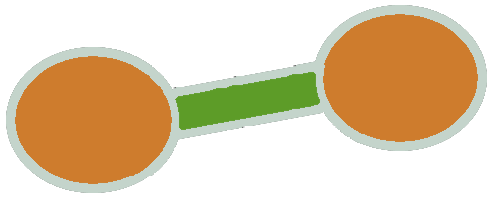Ninatoka
 concept
conceptAngiogenesis
Angiogenesis is an important process for forming new blood vessels. It is fundamental in many biological processes including development, reproduction and wound repair. Under these conditions, angiogenesis is a highly regulated process. Numerous inducers of angiogenesis have been identified, including the members of the vascular endothelial growth factor family, angiopoietins, transforming growth factors, platelet-derived growth factor, tumor necrosis factor-alpha, interleukins and members of the fibroblast growth factor family. Vascular endothelial growth factor-A is the most potent pro-angiogenic protein described to date. It induces proliferation, sprouting and tube formation of endothelial cells. Angiogenesis is therefore a putative target for therapy. The potential application of different angiogenesis inhibitors is currently under intense clinical investigation. A better understanding of the biology of angiogenesis may reveal new targets for treating many diseases that are associated with this complex process.
Ref:
Otrock ZK, Mahfouz RA, Makarem JA, Shamseddine AI. Understanding the biology of angiogenesis: review of the most important molecular mechanisms. Blood Cells Mol Dis. 2007 Sep-Oct;39(2):212-20. doi: 10.1016/j.bcmd.2007.04.001. Epub 2007 Jun 6. PMID: 17553709.
Join Ninatoka!!
NinatoKa's goal is to support you as a therapist in unravelling the illness pathway from symptoms to cause, and to help you detect potential interventions.
Go to Explore to start your discovery!
Go to Learn to scroll through newly added data.
Go to Contribute to contribute to the Ninatoka database.
You can rate content up or down and add comments if you agree or disagree.



